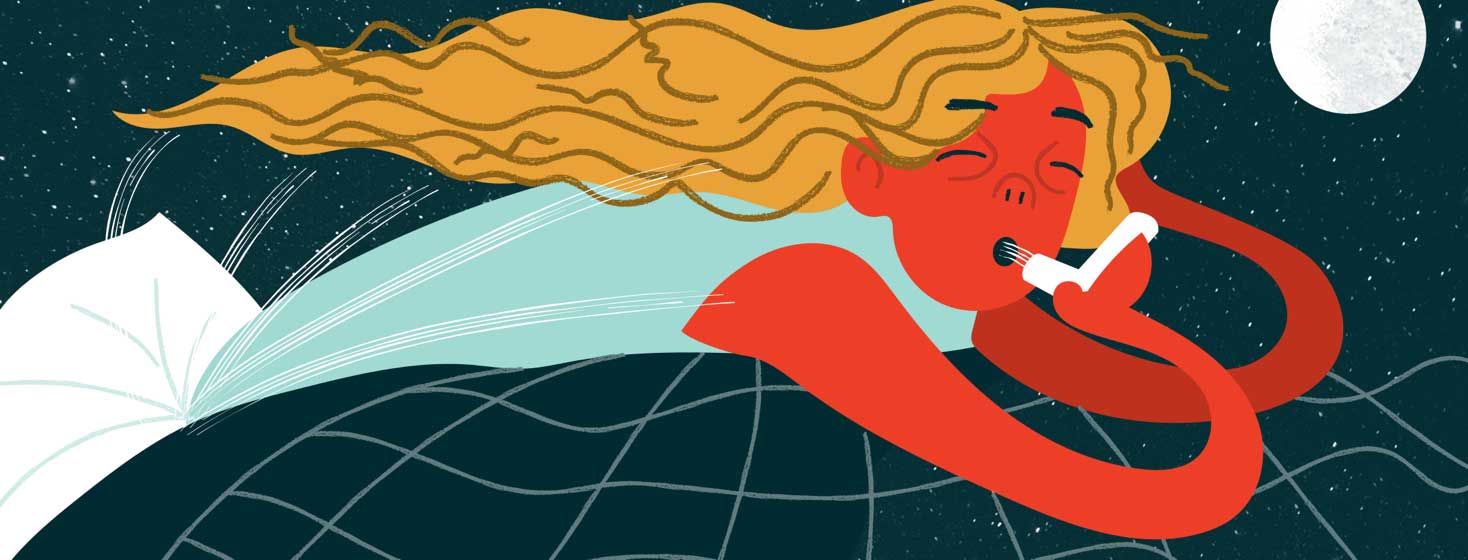What Is Nocturnal Asthma and What Causes It?
Have you ever woken up in the middle of the night coughing, unable to slow your breathing, reaching for your inhaler? This happened to me recently.
Changing seasons
I noticed that I have been struggling with some shortness of breath and tightness in my chest since the Northeast region of the United States started experiencing warmer temperatures. This time of year, I’m always very cognizant of changing weather patterns, the humidity levels indoors (or a lack thereof), pollen counts, how often I’m showering after being outdoors, and more. All of these can play a role in allergic asthma, in my personal experience.
My sleep attack
I woke up abruptly, sitting straight up in bed. I half-asleep reached for my rescue albuterol inhaler, took my two deep breaths in, and laid back down as if nothing had happened. It’s definitely not my first rodeo. I’ve experienced these “sleep attacks” before. I woke up barely remembering the experience and my husband asked if I was OK.
I started running down my mental “what if” list to determine a cause:
- When is the last time I vacuumed our bedroom?
- How many days have passed since I changed the linens or mattress and pillow covers?
- How old is my air purifier filter?
- Did daylight saving time play a role?
- Was I outdoors today? If so, did I wash my hair before bed?
- Did I remember to take my medicine today and last night?
Nocturnal asthma
It turns out there is a clinical term for what I experienced. I know – I really liked “sleep attack,” too, but it’s something called nocturnal asthma. It is actually pretty common. According to some research, about 75 percent of people with asthma wake up with nighttime symptoms at least once a week. I remember having this issue almost nightly as a child when I had more severe asthma. It struck me by surprise as a 30-something with otherwise controlled asthma.1
Although it is not well understood, researchers think nocturnal or nighttime asthma symptoms that jolt us from our relaxed state can be due to a variety of reasons, including:2,3,4
- Hormones, which react to our internal circadian rhythm. Changes to these can result in inflammation. Pregnancy and PMS can also contribute to fluctuations in hormone levels that lead to inflammation.
- Obesity, which affects 47 percent of those who took the 5th Asthma In America survey.
- GERD, or gastroesophageal reflux disease, is reported in as many as 80 percent of people with asthma. It affects 41 percent of people who took the 5th Asthma In America survey.
Other triggers or causes include environmental issues like smoking, allergens in the bedroom, diet, medications, cold air, and other infections or cold viruses.5
My possible nocturnal asthma triggers
I am accepting that I’m just not sure why this sleep attack occurred. My sheets were changed 2 nights prior, the air purifier filter is about 2 months old (it usually lasts 4-5, or even 6 months). However, I did skip vacuuming that week. I also spent 30 minutes outdoors earlier in the day. But, I’m still not convinced those are the only reasons. For someone with otherwise controlled asthma, this didn’t make too much sense to me.
Perhaps I had a bad dream? Maybe I was sleeping in an awkward position for too long? Maybe my cat decided to lay on my neck? I might never learn what caused it, but I do plan to bring it up to my asthma/allergy specialist the next time I go in for my monthly allergy shots.
How about you? What triggers cause you to experience nocturnal asthma symptoms?

Join the conversation